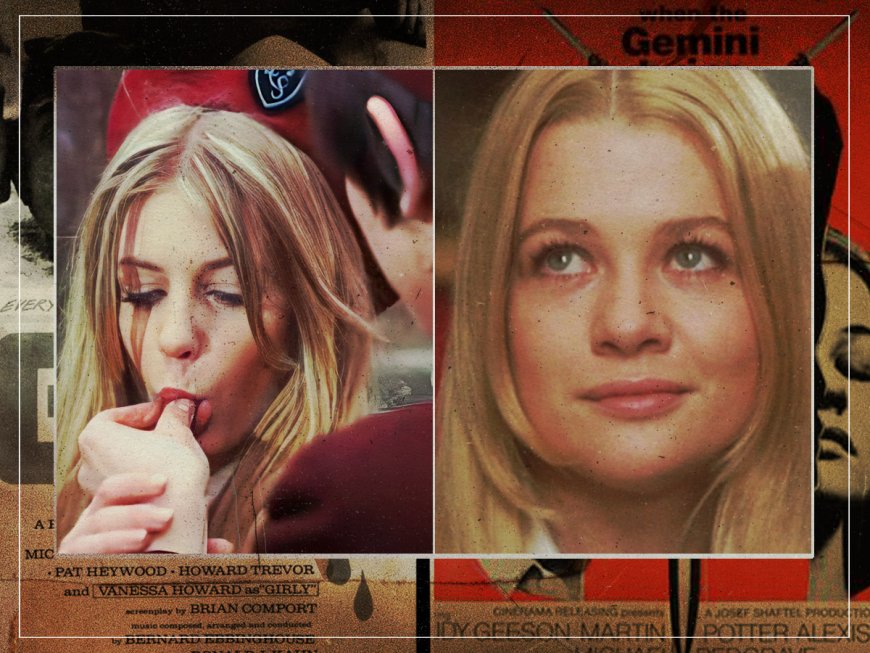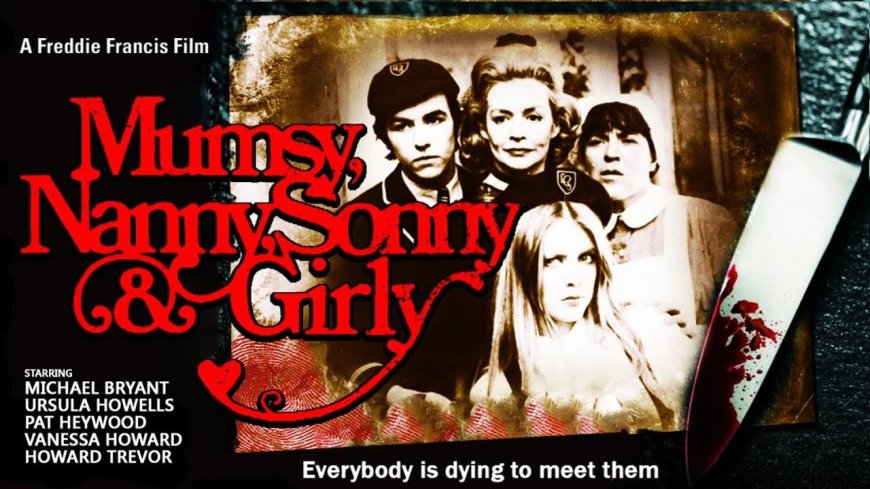The Two Erotic Films That Sparked Moral Panic in 1970s Britain
Discover the two controversial British erotic films that ignited nationwide outrage in the 1970s. Explore how Mumsy, Nanny, Sonny and Girly and Goodbye Gemini challenged societal norms and triggered moral panic.

The Two Erotic Films That Sparked Moral Panic in 1970s Britain
Today, we live in a world where sex, nudity, and graphic themes are routinely seen in music videos, films, advertisements, and even social media. What was once deemed taboo has become part of everyday popular culture. Audiences barely flinch at provocative content, and celebrities wearing revealing outfits are no longer a cause for societal outrage. But it wasn’t always this way.
During the 1960s, the world, especially Britain, began undergoing dramatic cultural shifts. The post-war generation was rejecting outdated moral codes, embracing personal freedom, and experimenting with new forms of expression. As the Beatles revolutionized music and fashion icons shortened hemlines, a vibrant wave of liberation swept across London. This "Swinging London" era redefined British identity, blending psychedelia, political activism, and sexual openness.
From Cultural Revolution to Cinematic Provocation
This newfound freedom didn’t stop at music or fashion. It extended into the arts—and cinema was no exception. Films like The Pleasure Girls, Blow-Up, and Darling offered glimpses into the evolving mindset of the British youth, portraying themes like casual sex, female independence, and hedonism. These films, though reflective, often walked a fine line between social realism and scandal.
However, by 1970, British filmmakers began to push boundaries further. Inspired by exploitation cinema and the sexual liberation movement, two films emerged that were so provocative, they caused widespread public outrage. These were Mumsy, Nanny, Sonny and Girly (1970), directed by Freddie Francis, and Goodbye Gemini (also 1970), directed by Alan Gibson.
The Films That Shook British Morality
1. Mumsy, Nanny, Sonny and Girly (1970)
In Mumsy, Nanny, Sonny and Girly, viewers are introduced to a disturbing household—a twisted “family” that lures men into their country estate under the guise of playful innocence. Once inside, these unsuspecting guests become unwilling participants in perverse role-playing games. Any attempts to escape result in murder, which the "family" gleefully records and watches for entertainment. Blending psychological horror with erotic themes, the film challenged viewers’ notions of traditional family values and was swiftly met with censorship and disgust in the UK.
Though banned or pulled from many theatres, the film developed a cult following abroad, particularly in the United States, where its disturbing mix of eroticism and satire found a niche audience. Today, it's viewed as an important, if unsettling, artifact of British exploitation cinema.
2. Goodbye Gemini (a.k.a. Twinsanity)
Goodbye Gemini took things a step further. The film tells the story of fraternal twins—Jacki and Julian—living in swinging London, whose incestuous obsession with one another becomes the center of a spiraling nightmare. Set against a backdrop of psychedelic excess, nightclubs, and moral decay, the twins' descent into manipulation and violence unnerved audiences and critics alike.
Its raw depiction of taboo subjects—especially incest, sexual confusion, and psychological manipulation—was too much for many. Demonstrators protested outside cinemas, accusing the filmmakers of corrupting British youth. Some theaters bowed to the pressure and removed the film from their listings entirely.

A Nation in Cultural Conflict
These two films didn’t just challenge viewers—they symbolized the tension between the old guard and the emerging new generation. Britain in the 1970s was a country torn between its conservative roots and the rise of radical freedom of expression. The older generation saw these films as vulgar and dangerous, while younger audiences viewed them as bold explorations of human psychology, sexuality, and repression.
The backlash against these films speaks volumes about the period’s social anxieties. There was fear that liberalism was going too far, that sexual openness would erode the very fabric of society. But in retrospect, these films weren’t just scandalous for scandal’s sake—they were creative responses to a rapidly changing world.
Legacy and Reevaluation
Decades later, both Mumsy, Nanny, Sonny and Girly and Goodbye Gemini have been reexamined by critics and film scholars. While they may not be universally praised, they are appreciated for their daring subject matter and social commentary. Their status as cult classics shows that cinema, even when controversial, has the power to provoke important conversations about morality, identity, and freedom.
Conclusion: Art, Censorship, and the Power of Provocation
The moral panic surrounding these two British erotic films wasn’t just about their content—it was about a society at a crossroads. They reflect a time when cultural norms were being rewritten, and the battle between restraint and freedom was playing out on the big screen. In challenging the status quo, these films became part of a larger dialogue about censorship, artistic liberty, and the changing face of British society.
While they shocked, disturbed, and even outraged audiences, they also helped redefine what British cinema could dare to express. And for that reason alone, they remain unforgettable.











